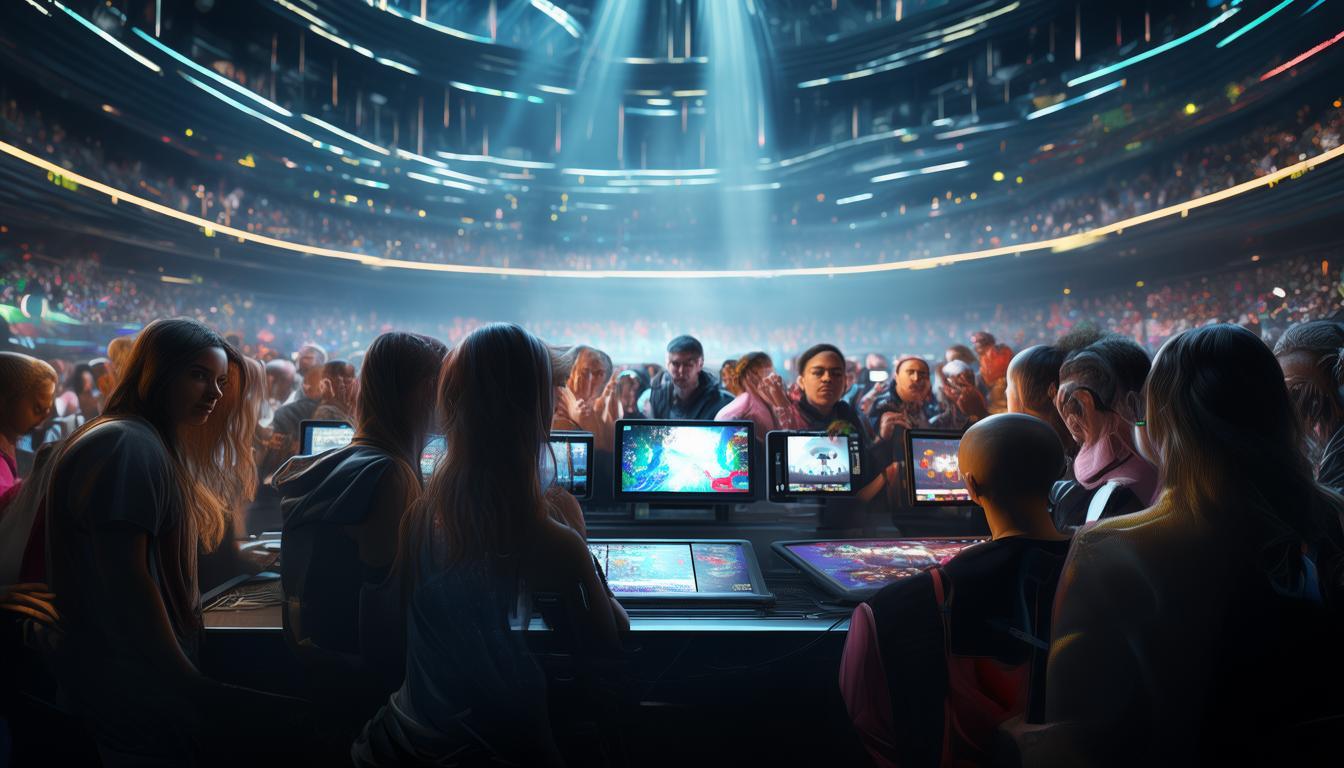Is Mobile Gaming Really a Sport?
"Is Mobile Gaming Really a Sport?" 该问题探讨了移动游戏是否应被视为一项体育运动,随着移动游戏技术的发展和玩家竞技水平的提高,一些人认为移动游戏具备体育竞技的特点,如策略性、反应速度和团队合作,也有人认为移动游戏缺乏传统体育项目的身体活动和户外竞技元素,因此不应被归类为体育运动。
In the digital age, mobile gaming has soared in popularity, captivating audiences worldwide with its accessibility, convenience, and engaging gameplay. With esports (electronic sports) becoming a recognized and lucrative industry, the question arises: is mobile gaming really a sport?
To answer this, we must first understand the essence of what constitutes a sport. Traditionally, sports are defined by physical exertion, skill, and competition. They often involve physical activities like running, jumping, or hitting a ball, all requiring athletic ability and practice. However, in the realm of mobile gaming, the physical aspect is significantly reduced, replaced by mental agility, strategic thinking, and rapid reflexes.

Mobile games, such as MOBAs (multiplayer online battle arenas), puzzle games, and even racing simulations, demand a high level of skill and practice. Players invest countless hours honing their abilities, studying game mechanics, and perfecting their strategies. This dedication and commitment to improvement are hallmarks of athletic training in traditional sports.
Moreover, mobile gaming is inherently competitive. Players often engage in multiplayer battles, tournaments, and leagues, facing off against opponents from around the globe. The stakes can be high, with prizes ranging from digital rewards to substantial cash prizes. This competitive aspect, combined with the rigorous training required to excel, aligns mobile gaming with traditional sports in terms of spirit and intensity.
Yet, detractors argue that mobile gaming lacks the physical exertion necessary to be considered a sport. They point to the sedentary nature of gaming, which can lead to health issues like eye strain, carpal tunnel syndrome, and obesity if not managed properly. While these concerns are valid, they do not negate the mental and strategic demands of mobile gaming. In fact, many professional gamers undergo rigorous physical training to complement their gaming skills, ensuring they remain physically fit to endure long gaming sessions.
Furthermore, the recognition of mobile gaming as a sport is not just a matter of semantics. It has tangible benefits for players, including access to scholarships, sponsorships, and professional careers. As the industry continues to grow, more opportunities are arising for talented gamers to monetize their skills and pursue their passions.
In conclusion, while mobile gaming may not involve the same physical exertion as traditional sports, it certainly meets the criteria of skill, competition, and dedication. With its rising popularity and the increasing recognition of esports, it is clear that mobile gaming is more than just a pastime; it is a legitimate form of competition worthy of being called a sport.
-
 在星夜下失眠
发布于 2025-08-14 12:49:40
嘿,手机游戏这位新兴选手正大步迈向体育赛场呢!它有着竞技的热血、策略的智谋,虽有人质疑,但它以独特魅力在数字世界掀起体育新风浪。
在星夜下失眠
发布于 2025-08-14 12:49:40
嘿,手机游戏这位新兴选手正大步迈向体育赛场呢!它有着竞技的热血、策略的智谋,虽有人质疑,但它以独特魅力在数字世界掀起体育新风浪。
-
 天然萌女可爱范
发布于 2025-08-31 04:05:52
Mobile gaming, while offering immense entertainment and competitive elements akin to traditional sports like speed of play or strategy development,ultimately lacks the physicality that defines a sport. Its essence lies in its digital nature rather than athletic prowess.
天然萌女可爱范
发布于 2025-08-31 04:05:52
Mobile gaming, while offering immense entertainment and competitive elements akin to traditional sports like speed of play or strategy development,ultimately lacks the physicality that defines a sport. Its essence lies in its digital nature rather than athletic prowess.
-
 蔑心倾城泪
发布于 2025-09-10 08:25:49
Mobile gaming's claim as a sport is akin to calling ping-pong an Olympic event. It may be competitive, but lacks the physicality and historical depth of traditional sports.
蔑心倾城泪
发布于 2025-09-10 08:25:49
Mobile gaming's claim as a sport is akin to calling ping-pong an Olympic event. It may be competitive, but lacks the physicality and historical depth of traditional sports.
-
 东风寄千愁
发布于 2025-09-17 21:27:43
嘿,手机游戏这位新选手正活力满满地冲进赛场,它有竞技的热血、策略的较量,凭啥不能像传统运动一样,成为体育家族的骄傲呢?
东风寄千愁
发布于 2025-09-17 21:27:43
嘿,手机游戏这位新选手正活力满满地冲进赛场,它有竞技的热血、策略的较量,凭啥不能像传统运动一样,成为体育家族的骄傲呢?
-
 无味是清欢
发布于 2025-12-23 21:45:25
嘿,手机游戏这位新选手,虽灵动俏皮,却难掩竞技规范短板,能算体育家族一员?
无味是清欢
发布于 2025-12-23 21:45:25
嘿,手机游戏这位新选手,虽灵动俏皮,却难掩竞技规范短板,能算体育家族一员?